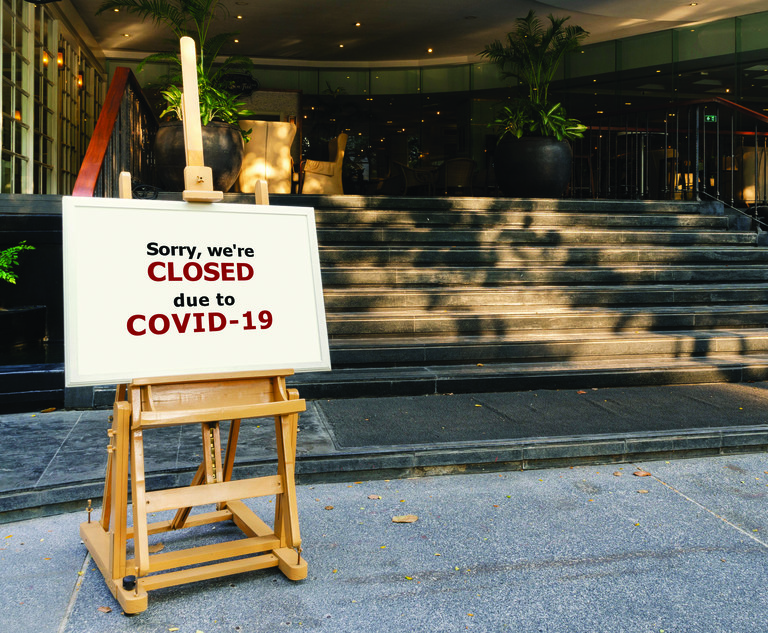In Heights Apartments v. Walz, the U.S. Court of Appeals for the Eighth Circuit held that the appellant, a residential apartment owner, had stated viable Contracts Clause and Takings Clause claims stemming from Gov. Tim Walz’s executive orders mandating a statewide residential eviction moratorium during the pandemic.
In March 2020, shortly after Minnesota confirmed its first COVID-19 case, Governor Walz issued multiple executive orders (EOs) meant to limit the virus’s spread and provide relief to Minnesotans suffering from the pandemic’s impact.
Three specific EOs dealt with a residential eviction moratorium. On March 23, 2020, Governor Walz signed EO 20-14, which stated that while tenants were still obligated to pay rent, landlords could not evict tenants unless they seriously endangered the safety of other residents or engaged in illegal conduct. On June 5, 2020, Governor Walz signed EO 20-73, which clarified that landlords could evict tenants who endangered others on the premises, and not just residents. Then, on July 14, 2020, the governor rescinded both EOs and issued EO 20-79, which held the moratorium in place for all tenants except those in certain categories, including tenants who endangered others, engaged in illegal activity, and seriously damaged property. All three EOs did not have end dates, and all three imposed criminal sanctions for any willful violation by a landlord.
Appellant Heights Apartments (Heights) executed a contract to buy three residential properties in Minnesota before EO 20-14 took effect but closed on those properties afterward. On Sept. 24, 2020, Heights sued Governor Walz, Minnesota State Attorney General Keith Ellison, and some John Doe defendants. Heights sought a declaration that the defendants violated the U.S. Constitution and sought a permanent injunction barring enforcement of all such orders, along with damages and attorney fees. Defendants moved to dismiss, and the district court granted the motion without prejudice, and also denied Heights’ motion for injunctive relief.
After the parties filed their appeal briefs, the Minnesota legislature voided the eviction moratorium EO and enacted a new statute that imposed a moratorium until June 1, 2022, subject to certain conditions. As a result, Governor Walz moved to dismiss the appeal in part, arguing that the Eighth Circuit lacked subject matter jurisdiction over the request for injunctive relief. The Eighth Circuit agreed, concluding that because the EOs had been voided, there was no longer a live case or controversy as to the request for injunctive relief, but that Heights could still seek damages.
Heights appealed the district court’s decision on four claims.
First, Heights alleged a Contract Clause violation under 42 U.S.C. §1983, arguing that the EOs violated the Constitution’s prohibition against states interfering with contractual obligations. The court noted that it had never expressly decided whether §1983 authorized a private right of action for Contract Clause violations, though the claim has been asserted in the circuit before. The Court noted that although the U.S. Supreme Court had early on suggested that the Contract Clause did not authorize such a private right of action, Carter v. Greenhow, 114 U.S. 317, 322-23 (1885), it later clarified its holding to allow for the possibility, Dennis v. Higgins, 498 U.S. 439, 451 n.9 (1991). Based on this, the Eighth Circuit assumed without deciding that §1983 allowed a private cause of action.
Then, turning to the allegations, the Court concluded that Heights had stated a claim using a two-prong test that considers whether the state’s law (1) substantially impairs a contract right; and (2) if the first prong is met, whether the law is drawn in an appropriate and reasonable way to advance a significant and legitimate public purpose.
Under the first prong, the Court found that the EOs substantially impaired Heights’ contractual rights, including its fundamental “right to exclude” others from its property, which are, in turn, essential to tenant-landlord contracts. The Court also held that this impairment was not reasonably foreseeable because Heights did not have reasonable notice of the EOs, which were drawn from broader emergency power statutes and did not make clear the possibility of an indefinite moratorium.
Under the second prong, the Eighth Circuit then concluded that the state’s authority to impose restrictions is not unlimited. Although the Court acknowledged that fighting the COVID-19 pandemic is necessarily an important public purpose, and that ensuring housing for tenants served that purpose, the EOs were not reasonably tailored. The Court noted, for example, that Heights alleged that some of its tenants engaged in various kinds of normally impermissible conduct, including holding “raucous parties,” and still could not be evicted. Such behaviors undermine the purpose of limiting the spread of COVID-19 but were not addressed by the EOs. As a result, the EOs were not narrowly tailored.
Second, Heights alleged a First Amendment claim, arguing that the moratorium restricted its right to access the courts. Because this was a “backward looking claim,” Heights needed to, but could not, identify a remedy exclusively tied to the alleged harm, as Heights’ only alleged harm was damages and it was already seeking that remedy through other claims.
Third, Heights alleged both a per se physical takings claim and a non-categorical regulatory takings claim under the Fifth Amendment’s Takings Clause. As to the former, Heights alleged that the EOs were effectively physical takings because they forced landlords to accept their tenants’ physical occupation of their property without collecting rent, citing a similar case involving a law that required certain employers to allow union organizers to occupy the employers’ property, even temporarily. As to the non-categorical takings claim, which relies more generally on takings principles, the Eighth Circuit held that Heights sufficiently alleged that it was deprived of rental income and its ability to manage its property according to its investment-backed expectations. And, the court held that Heights had sufficiently alleged that the EOs forced landlords to bear a disproportionate burden for a benefit not shared by all or even most Minnesotans, thus satisfying the test.
Fourth, and finally, the court held that Heights’ substantive due process claim under the Fifth and Fourteenth Amendments was not plausibly pled, noting that substantive due process is ill-defined and the Supreme Court has warned against expanding the concept. This was particularly true where, as here, Heights had other viable claims.
Faris Rashid is an attorney at Greene Espel.
NOT FOR REPRINT
© 2024 ALM Global, LLC, All Rights Reserved. Request academic re-use from www.copyright.com. All other uses, submit a request to [email protected]. For more information visit Asset & Logo Licensing.









